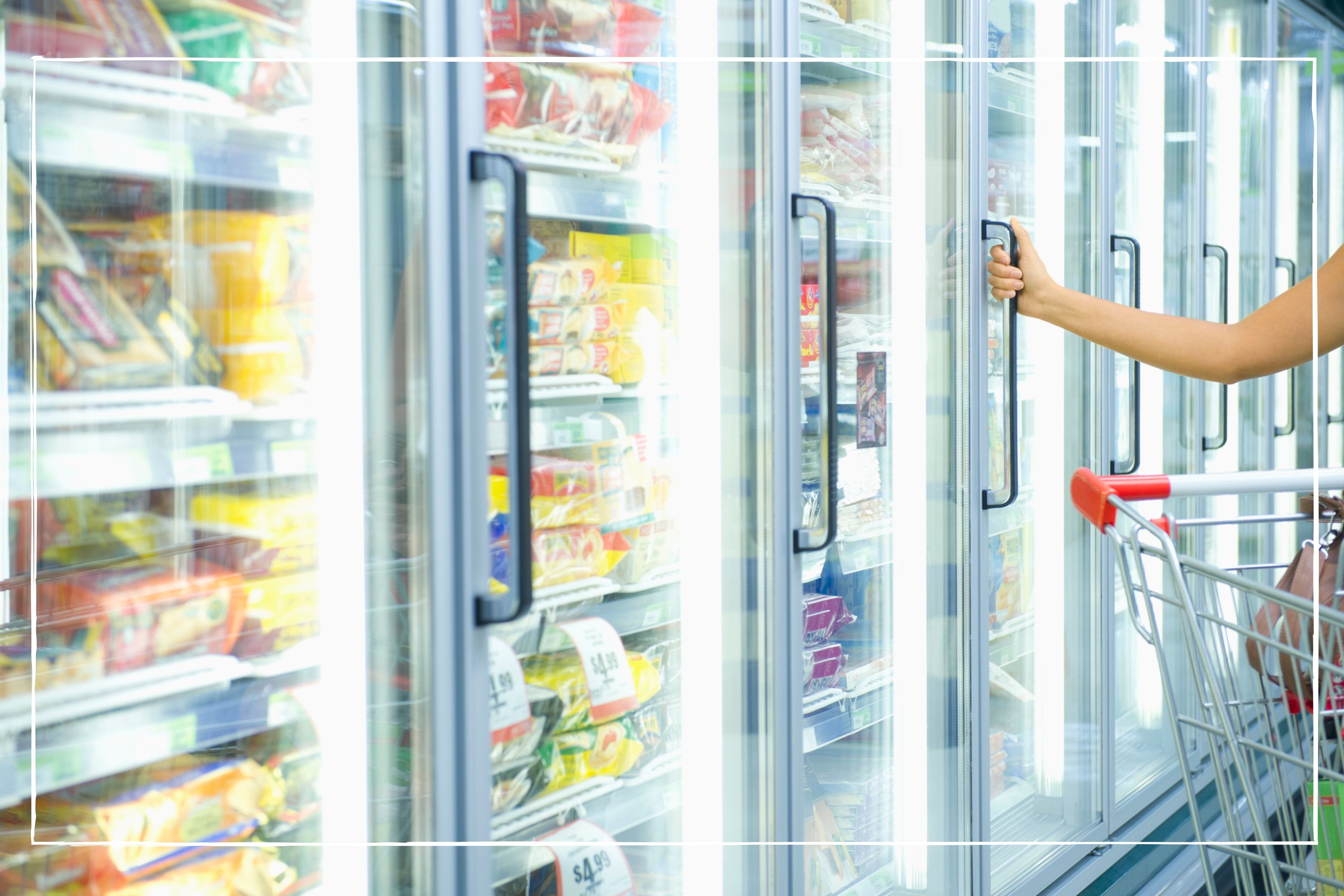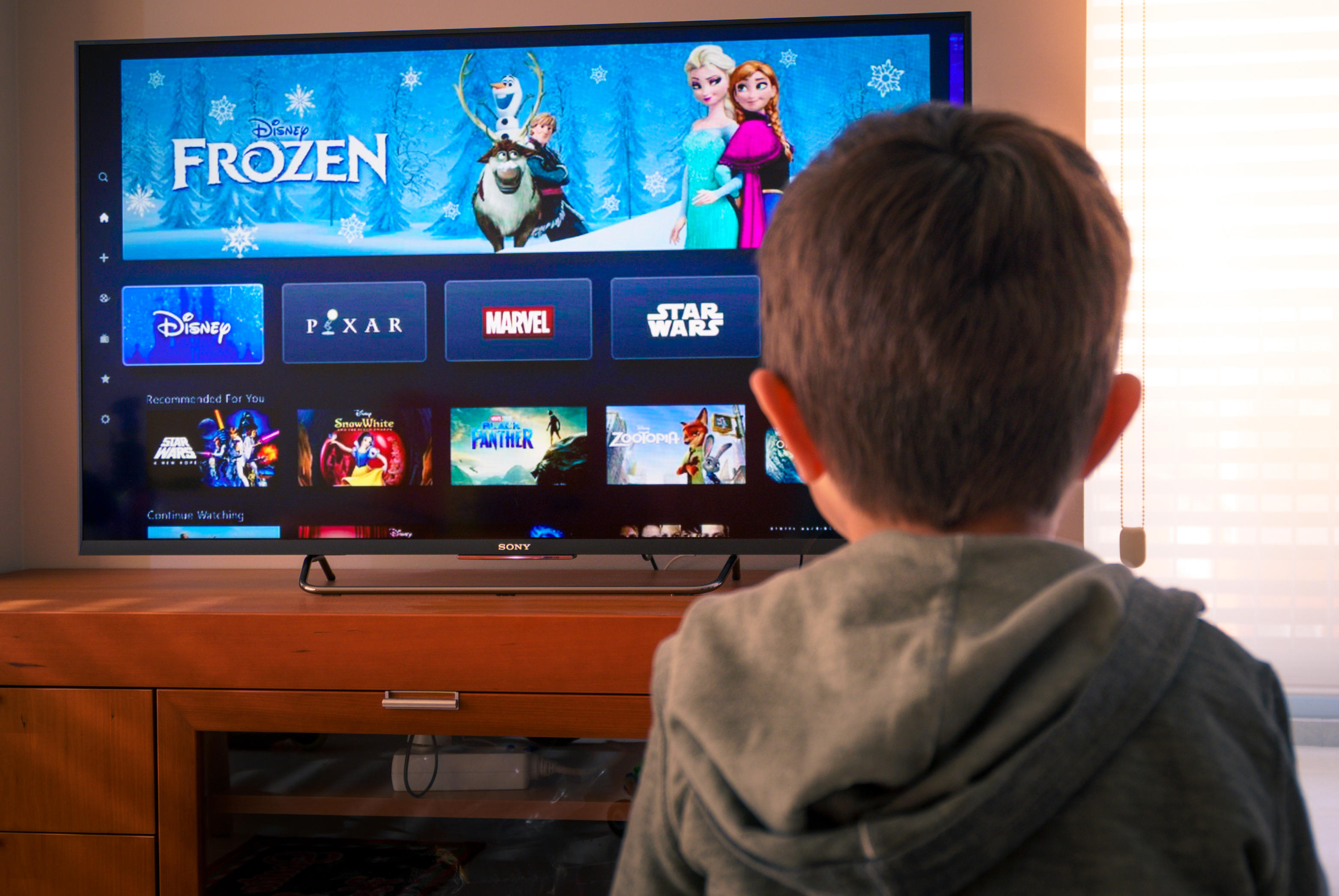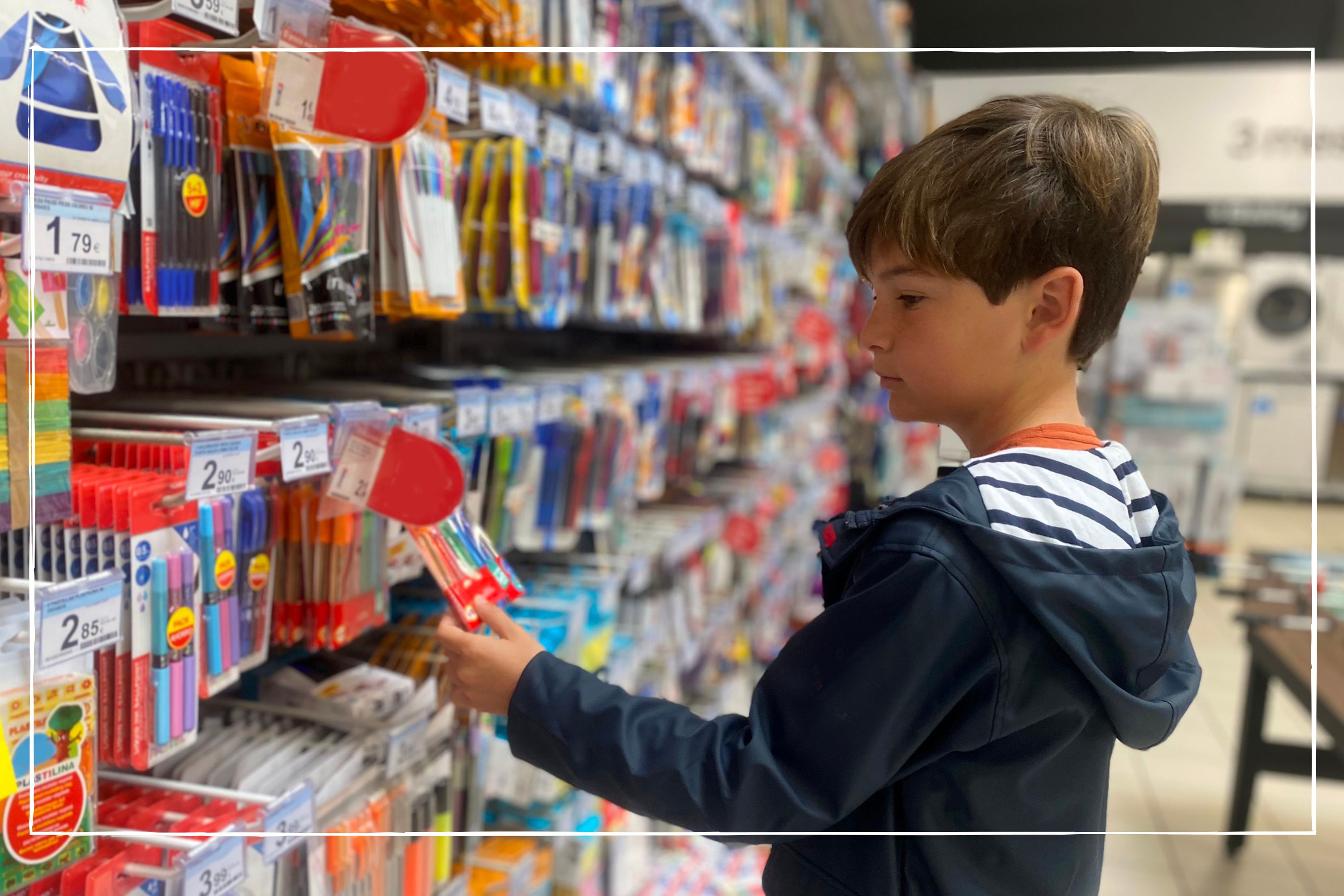Is frozen food cheaper than fresh?
As we all look for ways to save money, you might be wondering ‘is frozen food cheaper than fresh?’ We’ve crunched the numbers to find out


Is frozen food cheaper than fresh is a question you might have asked yourself the last time you were wandering around the supermarket aisles.
With Christmas getting closer, turkey prices going up and energy bills remaining at record highs, many families are concerned about how much it costs to cook a Christmas dinner and are looking for tips on how to save money on food.
CEO and founder of grocery retail app Ubamarket, Will Broome told us: “Shoppers are increasingly turning to frozen alternatives because they are more cost-effective – this is because they last a lot longer than fresh food and are also cheaper on average. Soaring food and energy prices mean that many families will worry about struggling to afford everything that comes with Christmas festivities. Inevitably, many families will have to cut back on costs in order to enjoy the festive season, and this is one of the areas where we are seeing the big change in habits.”
Is frozen food cheaper than fresh?
Frozen food can be considerably cheaper than fresh, but ultimately this will depend on exactly what you’re buying.
Chief executive of the British Frozen Food Federation, Rupert Ashby, told us: “One of the main reasons frozen food is cheaper than the fresh alternative is because the produce is usually produced in-season not far from where it is processed, thus reducing transport costs. It is processed quickly and efficiently with minimal waste and due to its long shelf life, is therefore available all year round.”
In our research we found that certain meats, fish, vegetables and fruits were more likely to be cheaper when bought frozen rather than fresh.
The table below shows a selection of items we found to be cheaper when bought frozen, using Tesco prices.
GoodtoKnow Newsletter
Parenting advice, hot topics, best buys and family finance tips delivered straight to your inbox.
| Item | Frozen price | Fresh price | Price difference |
|---|---|---|---|
| Salmon | £5.55 (550g) | £8 (550g) | £2.45 |
| Fish fingers | £2.20 (300g) | £3 (300g) | 80p |
| Chicken thighs | £3.50 (1kg) | £6 (1kg) | £2.50 |
| Lamb chops | £6.80 (550g) | £8 (550g) | £1.20 |
| Pork sausages | £2.90 (900g) | £2 per 454g pack, or £4 for 908g | £1.10 |
| Pepperoni pizza | £1.45 per pizza | £3.50 per pizza | £2.05 |
| Fine green beans | £1 (900g) | £1.05 per 80g pack, or £11.55 for 880g | £10.55 |
| Brussel sprouts | £1.30 (1kg) | 95p per 500g pack, or £1.90 for 1kg | 60p |
| Raspberries | £2.40 (350g) | £1.39 for 125g or £4.17 for 375g | £1.77 |
Prices correct at the time of writing. We’ve compared like for like where possible.
As you can see, in some cases the savings were a matter of a few pence, but in other cases, the savings were significantly more - as much as £10 in the case of green beans.
However, in other cases, the frozen produce actually worked out to be more expensive or much the same. Here are the items we found that were cheaper to buy fresh:
| Item | Frozen price | Fresh price | Price difference |
|---|---|---|---|
| Chicken breasts | £4.40 (650g) | £4.35 (650g) | 5p |
| Minced beef (5% fat) | £5 (500g) | £2.89 (500g) | £2.11 |
| Garlic bread baguette | £1.50 | 95p | 55p |
| Long grain rice | £2.10 for 800g (steam bags) | 35p for 250g, or £1.05 for 750g (microwave pouches) | Approx £1.05 |
It therefore pays to compare options carefully and always check the price per kilogram if you’re not sure whether frozen or fresh is cheaper.
How long does frozen food last?
Generally it’s best to eat frozen meat within three months and fish within six months. Frozen fruit and vegetables can last between six and 12 months. In theory, frozen food can last indefinitely as long as it is stored properly. A freezer acts as a pause button, so food shouldn’t deteriorate and most bacteria will not grow on it. However, the quality of the food can lessen after a few months, often due to something known as freezer burn.
Jamie Griffin from food waste disposal manufacturer InSinkErator, explains: “Freezer burn is a term used which refers to the moisture lost from frozen products if food is left for too long in the freezer.
“The food items can lose moisture and can begin to discolour and shrivel. If stored correctly most foods should last for around 3-6 months before succumbing to freezer burn.”
Is frozen food still healthy?
Yes, frozen food is still healthy - in fact, frozen food can be just as, if not more, nutritious than fresh produce.
Rupert Ashby from the British Frozen Food Federation says: “Not only is frozen food more affordable, saving families up to £1,500 per year, frozen produce will typically contain a higher level of nutrients than fresh, which may have been stored for several days before reaching the supermarket shelf.
“When food is frozen, usually within hours of being picked or prepared, nutrients are locked in making it a premium and healthy option. For example, frozen broccoli is proven to retain more antioxidants and nutrients than ‘fresh’ and due to the extended shelf-life of frozen food, it doesn’t spoil if you forget about it at the back of the fridge.”
Pros and cons of buying more frozen food
Pros of buying frozen food
There are many benefits to buying more frozen food. As well as being a healthy option, frozen foods often come ready-prepared which can be a huge convenience for time-poor families, plus they can be better for portion control as you only use what you need.
Richard Ashby of the British Frozen Food Federation adds: “Buying frozen food means that consumers do not have to incur the hidden costs of waste in the fresh supply chain. Food waste accounts for about 6% of greenhouse gas emissions, so by reducing waste, frozen food also helps to reduce emissions and means that consumers can save money on their weekly shop whilst also making a positive choice for the environment.”
Cons of buying frozen food
However, there are also downsides to consider. For a start, you’ll need to take care when defrosting foods such as meat. As food defrosts, bacteria can grow and make you ill. For this reason, food should be defrosted in a fridge, not at room temperature. Defrosted foods must be eaten within 24 hours of defrosting and not refrozen unless they have been cooked first. You can find further tips on this on the food.gov.uk website.
There’s also the issue of storage - if your freezer isn’t big, you might struggle to cram it full of frozen food. Plus it can be easy to forget what’s in your freezer which means you might end up buying food you don’t need.
To get around this, food influencer Lucy Lord advises: “A simple and cheap labelling system helps you see what’s inside each wrapped bag or box and keeping a list inside the kitchen cupboard door of ‘what’s in the freezer’ will help to remind you of what’s in there before dialling for a take-out.”

Mum of two, Rachel is a freelance personal finance journalist who has been writing about everything from mortgages to car insurance for over a decade. Having previously worked at Shares Magazine, where she specialised in small-cap stocks, Rachel developed a passion for consumer finance and saving money when she moved to lovemoney.com. She later spent more than 8 years as an editor at price comparison site MoneySuperMarket, often acting as spokesperson. Rachel went freelance in 2020, just as the pandemic hit, and has since written for numerous websites and national newspapers, including The Mail on Sunday, The Observer, The Sun and Forbes. She is passionate about helping families become more confident with their finances, giving them the tools they need to take control of their money and make savings. In her spare time, Rachel is a keen traveller and baker.
-
 How to save money: 28 family-friendly money-saving tips for mums and dads
How to save money: 28 family-friendly money-saving tips for mums and dadsUnderstanding how to save money is key to limiting the impact of rising costs as much as possible
By Sarah Handley
-
 14 hidden benefits of your Amazon Prime membership
14 hidden benefits of your Amazon Prime membershipWe reveal the less-obvious perks of a Prime membership that will help you get the most value out of your subscription fee
By Rachel Wait
-
 14 surprising ways to spend your Tesco Clubcard vouchers - from restaurants and cinema passes to mini breaks and Disney+
14 surprising ways to spend your Tesco Clubcard vouchers - from restaurants and cinema passes to mini breaks and Disney+Tesco Clubcard vouchers can help you cut the cost of everything from groceries and travel to days out and cinema tickets
By Heidi Scrimgeour
-
 How to get Disney+ for free and save up to £79.90 a year
How to get Disney+ for free and save up to £79.90 a yearEven though the streaming giant ended its free trial offering, there are still multiple ways you can get Disney+ for free for up to 12 months
By Sarah Handley
-
 Parents of teens who have just taken their GCSEs urged to check child benefit status ahead of August deadline
Parents of teens who have just taken their GCSEs urged to check child benefit status ahead of August deadlineWith a child benefit deadline looming, some parents could see their payments reduced or stopped altogether - here's why
By Sarah Handley
-
 Parents should hold off buying this back to school staple 'as close to their first day as possible', says retailer
Parents should hold off buying this back to school staple 'as close to their first day as possible', says retailerWith parents turning their attention to kitting their kids out for the new school year, research suggestions which items should be left until the last minute
By Sarah Handley
-
 7 ways to save on back to school essentials, as its revealed parents will spend £2.3 billion in 2024
7 ways to save on back to school essentials, as its revealed parents will spend £2.3 billion in 2024We share ways you can get your child all the bits and bobs they need for the new school year, without breaking the bank
By Sarah Handley
-
 What day is child benefit paid around the bank holiday? Everything parents need to know
What day is child benefit paid around the bank holiday? Everything parents need to knowKnowing which day child benefit is paid when it comes to the bank holiday can help families plan their budgets accordingly
By Sarah Handley